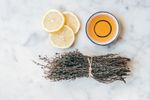Considering all of the angst and anxiety surrounding the ongoing COVID-19 pandemic, it makes sense that there is considerable confusion about whether or not to get one of the newly-approved booster shots of the vaccine. Not sure where you stand? Ask yourself these questions, below:
Am I eligible for a COVID-19 booster shot?
Per the CDC, the only people eligible for a booster shot right now are Pfizer recipients — those 65 years or older, those over age 18 who have an underlying health condition (such as obesity, diabetes or lung disease) and those who are living or working in a high-exposure environment (such as a school, grocery store or hospital).
RELATED: How Metabolic Disease Fuels Worst-Case Scenarios for COVID-19
That being said, qualifications for booster eligibility may expand rapidly. Just yesterday, the FDA voted in favor of authorizing a Moderna booster shot to be administered to eligible populations six months after the initial series and recommended a second dose of the Johnson & Johnson vaccine as a booster for anyone over 18 who had the initial single dose of the vaccine at least two months prior. The CDC accepted the FDA's recommendations, but ultimately, CDC Director Dr. Rochelle Walensky has the ability to accept or modify the proposed guidelines — including whether people can mix and match dosages — before they go into effect.
How long is an original COVID-19 vaccine effective?
According to a new study published in the journal The Lancet, the Pfizer vaccine’s effectiveness against developing infection dropped from 88 percent to 47 percent after six months. Some positive news, though: The same data showed the vaccine remains effective in preventing hospitalization, even when COVID-19 was contracted. “Vaccines are designed to prevent serious illness, but they aren’t quite as good at preventing milder infections,” says William Schaffner, MD, medical director of the National Foundation for Infectious Diseases (NFID). So, while the vaccine will likely keep you out of the hospital, getting a booster may be the best way to prevent breakthrough infections — and also, spreading the virus to others who may be even more vulnerable than you.
Again, Pfizer and Moderna boosters are recommended six months after your initial vaccination, and if you got the Johnson & Johnson vaccine, the FDA recommends a second dose (as a booster) as soon as two months after your first vaccine. Why the shorter timeframe? The Johnson & Johnson vaccine (which was initially popular because of its “one and done” appeal) has proven to be less effective than the Pfizer and Moderna vaccines. White House chief medical advisor Anthony Fauci, MD, says it’s “very likely [the Johnson & Johnson vaccine] should have been a two-dose vaccine to begin with.”
Do I have to get the same brand of booster shot as my first vaccine?
The FDA just approved a mix-and-match approach (e.g., if you got a Moderna vaccine, you could get a Pfizer booster) and today, the CDC aligned with the administration — but before this can go into effect, aforementioned CDC Director Dr. Rochelle Walensky has the ability to accept or modify the conditions. Recent federally funded research showed that switching up boosters raised COVID-19 antibodies, regardless of combination. The mix-and-match strategy seems to be particularly applicable to the Johnson & Johnson vaccine. In the study, Johnson & Johnson recipients who got a Moderna booster shot experienced a 76-fold increase in antibody levels in 15 days, as opposed to just four-fold with an extra Johnson & Johnson vaccine. Per the FDA, Johnson & Johnson vaccine recipients can get their booster two months after the initial dose, regardless of the vaccine brand.
If I still have antibodies, do I need a booster shot?
Yes — antibody levels aren’t that reliable. “As is true with other vaccines, we don’t have a clear antibody level that is a correlate of protection,” explains Dr. Schaffner. Antibody tests— if you can even access one — can indicate if a vaccine has spiked your protein antibody levels, but there is no definitive number that puts you in the clear. It’s also worth noting that tests sometimes result in false negatives, so it’s hard to accurately determine if you truly have antibodies or not.
RELATED: COVID-19 Antibody Tests: What You Need to Know
I already had COVID — Do I still need to get a booster shot?
People who have already had COVID in the past and are vaccinated “are considered exceedingly well protected,” says Dr. Schaffner. “But it doesn’t hurt to get a booster since it can offer you additional protection.” Adds Frank Lipman, MD, Chief Medical Officer of THE WELL: “I’m sure protection is increased by having had COVID-19, but we can’t really know if that holds true for variants of the particular COVID-19 infection you had. It may or it may not.”
How should I schedule getting a booster if I plan to get other (non-COVID) vaccines?
You can get your other vaccines (flu, shingles, etc.) the same day — at the same appointment, even — as receiving a COVID-19 booster. “There does not seem to be a summation of side effects,” says Dr. Schaffner. “The worst thing that is likely to happen is having two sore arms.”
On this particular point, Dr. Lipman dissents, saying, “In general, I’m not a big fan of getting a bunch of vaccines at once just because it’s convenient to do while you’re at the doctor’s office; I’m in favor of spacing vaccines as much as possible in order to give your immune response a chance to reset.” Dr. Lipman — who spoke out in support of the COVID-19 vaccine here — goes on to say that you should consider whether you even need something such as a flu vaccine. “If you’re healthy, nurturing your immune system, masking in public places and washing your hands frequently, maybe you can forgo the seasonal flu shot since its efficacy can be low, depending on the year and formulation.” It’s smart to discuss what’s best for you with your personal physician.
Will Merck’s New Pill Treat COVID?
Pharmaceutical giant Merck is working to get emergency clearance from the USDA for their new oral antiviral pill. The drug, called Molnupiravir, is a treatment for anyone at high risk who tests positive for COVID-19. As it stands, Merck recommends four pills twice a day for five days. Early studies show Merck’s new solution may help reduce the risk of hospitalization or death by 50 percent, but there’s still more research to be done. “I think we can be optimistic [about its effectiveness],” says Dr. Schaffner. “But hold your horses until we see all the data.”




